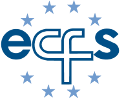Gerd Döring Award 2021
The Gerd Döring Award is an initiative of the European Cystic Fibrosis Society and is given annually to honour an exceptional young European scientist in their early career. The Award includes a monetary donation of 5,000 euro to support research. This year, the Award is given to Peder Berg (DK) in acknowledgement of his work.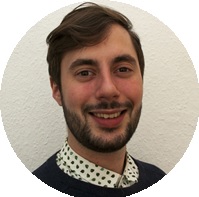
Peder Berg
Biography
Peder Berg is a MD from Aarhus University, Denmark (2019). While studying medicine, Peder was a student researcher from 2017-2019. He is now in the course of his Ph.D. education at the Department of Biomedicine, Aarhus University, studying the role of the CFTR anion channel in the kidney. In close collaboration with the CF center of Aarhus University Hospital, he strives to translate his findings to further the understanding of this complex disease.
Presentation of research
CFTR is present in our kidneys, but its function has remained elusive. The kidneys are vital to maintain acid-base and electrolyte homeostasis. Patients with CF have an increased risk of developing electrolyte disturbances, including metabolic alkalosis. We hypothesised this to be a direct consequence of dysfunctional CFTR in the kidney.
With the use of cell cultures, animal models, and the participation of CF patients, we investigated the role of CFTR in renal acid-base handling.
We found that in the collecting ducts, CFTR co-localises apically with the base secreting Cl-/HCO3--exchanger, pendrin. Loss of CFTR (in mice) or dysfunction of CFTR (in patients) causes a markedly reduced capacity of renal base excretion. In patients, treatment with lumacaftor-ivacaftor partially normalised this phenotype. These findings motivated us to develop an in vivo CF urine test to quantify CFTR function for validation of treatment efficacy. We now pursue this question in a larger clinical study.
Young Investigator Award 2021
Following the recommendations of the Steering Committee during the abstracts review process, the ECFS wishes to commend the quality of the work presented in the abstracts of some young investigators under the age of 35 having applied for the award.
The Young Investigator Award includes a monetary grant of € 750, a free registration to the Conference, and a 2021 ECFS membership subscription. We wish to extend our congratulations to the following Young Investigators:
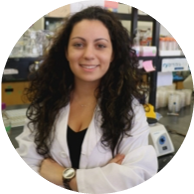
Melissa Iazzi
Biography
Melissa Iazzi is a PhD candidate in the Molecular Science Program at Ryerson, University Toronto, Canada. She studies CFTR's interaction network under the supervision of Dr. Gagan Gupta. From a young age, she knew she wanted to pursue a career in medical research. It became apparent to her that she wanted to study rare terminal illnesses when her younger sister passed away. It was through the realisation of the limited treatment options for her sister that she became determined to be a part in finding solutions.
About the research presented at the 44th European CF Conference, abstract number WS07.1:
The limited efficacy of therapies for CF could be partly explained by uncharacterised molecular defects caused by mutations in CFTR. This highlights the importance of understanding the dynamic network of interacting proteins that impact CFTR synthesis, folding, stability, localisation and function. Proximity-dependent biotin identification (BioID) is a powerful approach for comprehensive interactome mapping as it can reveal novel interactions and monitor alterations under different conditions. For the first-time, we will be performing this technique on BirA*-CFTR lines grown at the air-liquid-interface (ALI). The ALI induces further differentiation which reconstitutes many aspects of the in vivo airway. It is likely that this model has specialised interactions vital for CFTR biology.
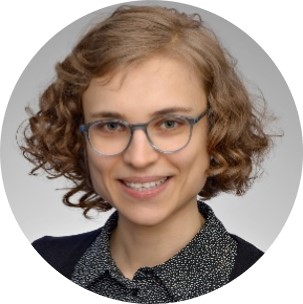
Marie-Madlen Pust
Biography
Marie-Madlen Pust grew up in Berlin the capital city of Germany and obtained the degree of Bachelor of Science in Natural Sciences (Chemistry) from the Open University (UK, Milton Keynes) in 2017 as well as a Master of Science in Biomolecular and Biomedical Science (Microbiology and Infection Biology) from the University College Dublin (IRL, Dublin) in 2018. That same year, she received a scholarship from the German Center for Lung Research and later from the German Academic Scholarship Foundation to pursuit her PhD studies at the Hannover Biomedical Research School in Germany.
About the research presented at the 44th European CF Conference, abstract number WS13.1:
Under the supervision of Prof. Dr. Burkhard Tümmler Marie-Madlen is investigating the development of the human airway microbiome in the early years of life and search for diseased microbial community signatures in children with cystic fibrosis. In general, the human airway microbiome consists of a few high-abundant and many low-abundant bacterial taxa. The latter remain largely unexplored due to the high DNA background pattern and hence low signal-to-noise ratio in next-generation sequencing applications. They developed a software tool and utilised machine learning algorithms to distinguish rare species from DNA background noise and to study their role in the early years of life. While doing this, they discovered that the presence or absence of rare species is the key variable in differentiating between the healthy and CF airway metagenome. Transferring healthy rare commensals into the early CF bacterial network was found to be the most essential part to rescue the vulnerable CF background structure of bacterial commensals.
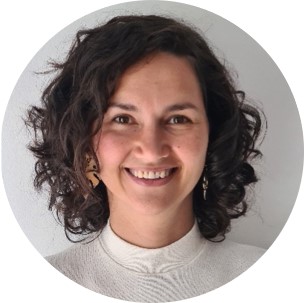
Iris Silva
Biography
Iris Silva started her career in science in 2010 after joining a molecular biology lab in the
University of Algarve, Portugal, to do her master's. In 2012, she started her PhD in the analysis of mutations in Paget’s disease of bone patients, in a collaboration between the University of Algarve and the Centre Hospitalier Universitaire du Québec, Canada. In 2016, she joined professor Amaral's group as a Postdoc fellow and she has been participating in several CF-related projects, such as the innovative “HIT-CF”.
About the research presented at the 44th European CF Conference, abstract number WS09.1:
In Europe there are still ~15% of people with CF (PwCF) not eligible for highly effective modulator therapies, and there is thus the unmet need to find alternative therapies. As part of the HIT-CF project, that aims at implementing personalised CFTR modulator treatments for PwCF with rare mutations by pioneering the use of intestinal organoids, we analysed the efficacy of novel therapies, such as from Proteostasis Therapeutics and Eloxx Pharmaceuticals. Organoids from 489 individuals from 47 CF-centers in 16 European countries were analysed and our data show clear responsiveness to the triple combination of the potentiator Dirocaftor, the corrector Posenacaftor, and the amplifier Nesolicaftor in 75% of the samples. Based on this, 26 individuals will be invited to participate in a clinical trial, which constitutes a unique opportunity for these individuals with ultra-rare mutations to benefit from novel drugs. The clinical trial could also validate the organoid-based personalised medicine approach.
